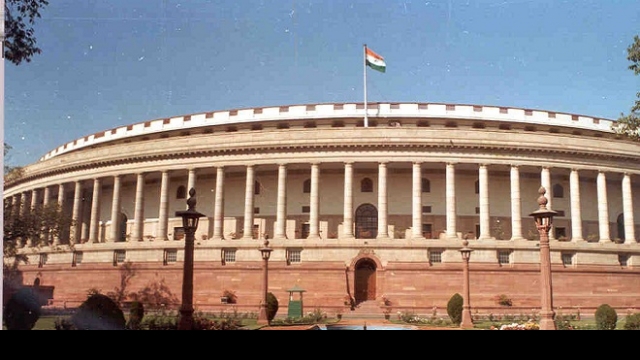This Article is written by Adarsh Singh Thakur, student of Indore Institute of Law. He discusses the position and powers of the Governors under the Constitution.

Introduction
In India, the federal structure of the Government can be seen. There is a division of powers between the Centre and the States. This division has led to the creation of the three branches or organs of the Government to be present at both the levels, therefore, the Legislature, Executive as well as Judiciary exist both at the Central as well as State Level.
Of all these organs, the executive has assumed the most dominant role in the Country because of the increase in its powers after the introduction of Delegation of Power. While at the Union the President is the head of the Executive, this position is enjoyed by the Governors at the State Level.
Governor
Article 153 of the Constitution provides the provision that there shall be a Governor for each State. This Article also provides that it is not necessary for every State to have a different Governor and thus a person can be appointed as the Governor of more than one State.
The Governor’s position in the State is identical to the position of the President of India and just like the President, the Governor is the Executive Head of the State. This authority is conferred on him under Article 154 of the Constitution which provides that the Executive power of the State is vested in the Governor.
How is the Governor Appointed?
The Governor of the state is appointed under Article 155 of the Constitution. He is appointed by the President of India by a warrant in his hand and seal. Thus in case of Governor, no elections are held and he is selected directly, unlike the President who is chosen by election, and a person can be appointed as the Governor by the authority of the President.
What is the term of office of Governor?
The provisions for the term of the Office of the Governor have been provided in Article 156 of the Constitution. Under this article the following terms are provided:
- The governor holds his office at the pleasure of the President. It means that a Governor serves till the time President deems it fit and he can be removed by him at any time.
- The Governor also has the power to resign from his office during his term. He can resign by addressing his intention to do so in writing to the President.
- Unless the Governor resigns from his office or the President removes him, the normal term of a Governor is provided for a period of 5 years from the date of him entering his office. (Article 156 (3))
What are the qualifications of a Governor?
For a person to become a Governor he has to fulfil some requirements. According to Article 157, a person is eligible for appointment as the Governor if:
- He is a citizen of India.
- He has attained the age of 35 years.
If these two conditions are fulfilled then the appointment of a person to the office of governor cannot be challenged in the grounds of him being ineligible.
What are the Conditions of Office of a Governor?
In addition to the qualifications, some other conditions are also attached to the office of Governor which have to be observed. These conditions have been provided under Article 158 of the Constitution which are:
- The governor should not be a member of the Parliament or a member of the Legislature if any State which is specified in Schedule I of the Constitution. If a person, who is a member of Parliament or such State Legislature is appointed as the Governor, then he is deemed to have vacated his seat in that house from the date he enters the office of Governor.
- The Governor should not hold any office of profit during his term.
- The Governor is provided with such allowances, emoluments and privileges which the Parliament provides by law and in the absence of such provisions, they are provided to him as per Schedule II.
- If a person is Governor of two or more States, his allowances are provided by the concerned States in such proportion which is specified by the President.
- The allowances and emoluments which are provided to the Governor cannot be reduced during his term of office.
Who administers the Oath of the Governor?
The Governor on being appointed has to undertake an oath before entering the Office. The oath is administered by the Chief Justice of the High Court of the concerned State and in case the Chief Justice is not present, then the senior most judge of the High Court administers the oath. The oath of the Governor is observed under Article 159 of the Constitution.

How are the functions discharged in case of contingencies?
The Constitution provides the provisions regarding powers and functions of the Governor but there are certain situations which may arise for which the provisions could not be made in the Constitution. So, in case of such a situation arising, Article 160 has been included in the constitution. This Article provides that in case any contingency arises for which the constitution has not provided the functions of the Governor, such provisions may be made by the President which he thinks are appropriate.
What are the Powers of Governor?
The Governor by being the Executive head of the State has been given many powers which can be broadly categorized into several categories. The powers of the Governor are similar to those of the President. These categories of the powers of Governor are as follows:
Executive powers
The Executive powers are vested on the governor which is exercised by him either directly or through subordinate officers. These powers are as follows:
- The Governor has the authority to make rules about the transactions of the State Government.
- The Governor has the right to seek information from the Chief Minister of the State about the various decisions taken by the Council of Ministers and Chief Minister is bound by duty to provide such information to him.
- The Governor can also require the Chief Minister to provide the decision of an individual minister to be considered by the Council.
- The Governor makes the appointments of the members of the Council of Ministers.
- In case the Chief Minister loses the confidence of the House, the governor has the right to dismiss the Chief Minister and his Council of Ministers.
Judicial Powers
The Governor is also provided with some judicial powers under the Constitution. Just like the President, the Governor also has the power to grant pardon. By allowing the request of pardon, the Governor can allow a person to be free from any punishment even if the Court finds him guilty of the offence. The power to grant pardon is discretionary and is not a right which can be exercised by every offender and thus the Governor has the right to decide in which cases he wants to grant pardon to a person and in which cases he does not want to grant such pardon.
Under Article 161 of the Constitution, the Governor has been granted this power. He also has the power to reprieve, commute, respite or remit the punishment of a person. Thus in many cases, the Governor can overturn the decision of the High Court but this power has to be exercised wisely because it can lead to a conflict between the Executive and Judiciary.
Legislative Powers
- Even though the Governor is part of the Executive branch in the State, he has been given certain Legislative powers as well. These powers are as follows: The Governor has the power to summon the House of the State Legislature (and in States where 2 houses are present, both the houses can be summoned by him). He can summon the House(s) at a time and place which he thinks is appropriate but the gap between the last sitting of the House and the next sitting should not be more than 6 months.
- The Governor also has the power to prorogue the House(s) of the State legislature which means that the House gets discontinued without being dissolved.
- The Governor can also dissolve the Legislative Assembly of a State under Article 174 of the Constitution. For e.g., The Governor of Jammu and Kashmir, Satya Pal Malik had dissolved the State Assembly of Jammu and Kashmir in 2018.
- The Governor can address the House(s) of the State Legislature after each General Election and also at the first session of the House(s) each year.
- The Governor’s assent is necessary for the Bills which are passed by the State legislature to become a law. The Governor can send the bill back to the House for reconsideration but if the bill is sent back by the House without any change, the Governor has to give his assent to that bill. Also, he cannot send the bill back to the State Legislature if it is a Money Bill.
- The Governor also has the right to reserve some bills for the consideration of the President.
- He has the power to nominate members to the House from the fields of Art, Literature, Social Service, Science etc. and can also nominate members of the Anglo-Indian community if he feels that they are not adequately represented in the House.
- In cases where the House is not in session, the Governor can issue an ordinance in case some situation arises which requires such an action. The ordinance remains valid for 6 weeks from the date the State Assembly resumes or it can cease to operate earlier if the Assembly passes a resolution to disapprove it.
- If any Bill is pending in the House(s), the governor can send a message to such House(s) for reminding them about the same.
Financial Powers
The Governor enjoys the following financial powers under the Constitution:
- The demand for a grant can be made by the state only on the recommendation of the Governor.
- The Governor can ask the state Legislature for additional grants under Article 205 of the Constitution.
- To introduce a Money bill in the State Assembly, the prior recommendation of the Governor is necessary and in its absence, no money bill can be presented in the Assembly.
- The Contingency Fund of the State can be used by the Governor at his disposal. He can use the fund to meet any unforeseen expenditure if the state Legislature approves it.
- The recommendations of the Governor is essential for making amendments regarding financial matters.
- The Governor has the authority to ensure that the annual budget is laid before the House(s) and is also passed by it.
Emergency powers
While the President and the Governor have been provided with similar powers under the Constitution, a Governor does not have the power to declare emergency in a state because this power is also vested in the President.
But the governor still plays a great role in the proclamation of emergency in a State. Under Article 356 the Governor has the power to send a report to the President when he is satisfied that the Constitutional machinery in the State has failed and the State Government can no longer function according to the provisions of the Constitution.
Thus the Governor plays an advisory role in the proclamation of Emergency in a State and in many cases even though President’s rule is imposed in the states, it is the Governor who assumes the function of the State Government by working as an agent of the President.
Conclusion
The Governor is the Executive Head of the State and in many cases, the powers of the Governor resemble those of the President of India. A person can be appointed as the Governor of two or more States and such an appointment cannot be challenged.
The Governor is appointed by the President and he serves at his pleasure. The Governor has been provided with many powers under the Constitution which can be divided into several categories. As the Executive head, he has many executive powers and in addition to that, he is also provided with other powers as well. He has the Legislative power of granting or refusing his assent to a bill,. The power to summon and prorogue the State Assembly. He also enjoys judicial powers such as granting pardon. In Financial matters too, the Governor has an important role and many Bills relating to financial matters can be introduced only on the recommendation of the Governor.
The Governor also plays a big role in the proclamation of Emergency in the State and in many cases he also assumes the functions of the State government. Thus the Governor despite being a titular head like the President still enjoys many wide powers in the State.
 Serato DJ Crack 2025Serato DJ PRO Crack
Serato DJ Crack 2025Serato DJ PRO Crack










 Allow notifications
Allow notifications


